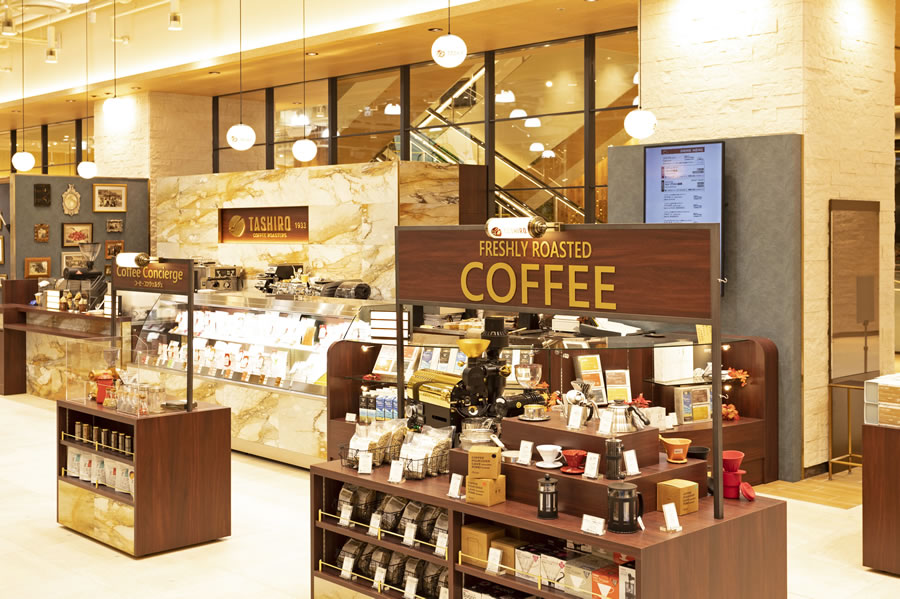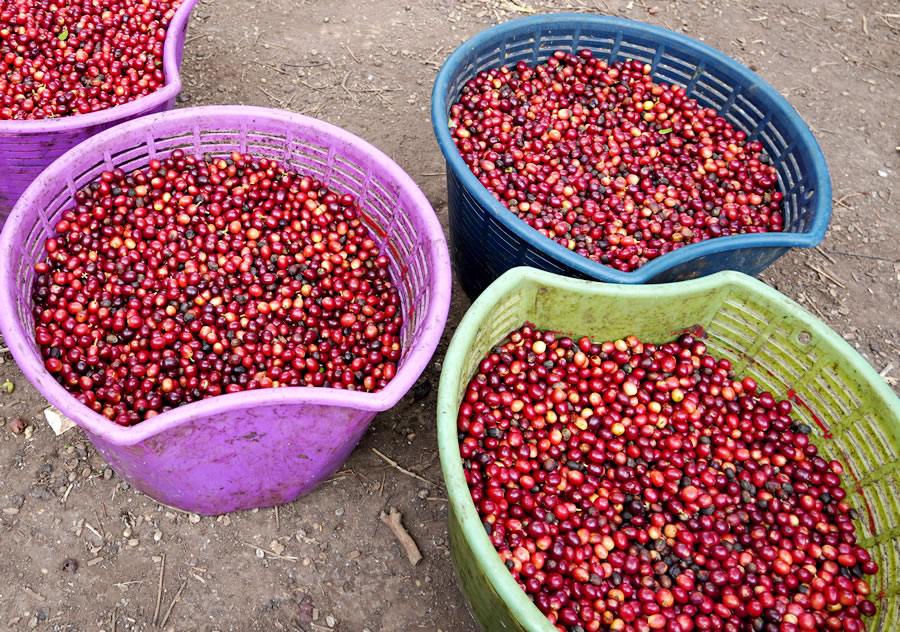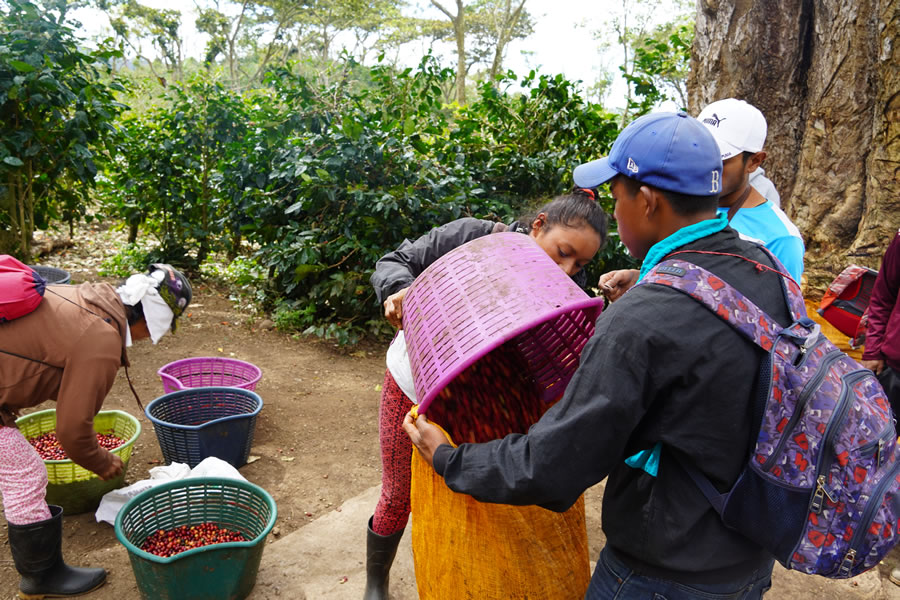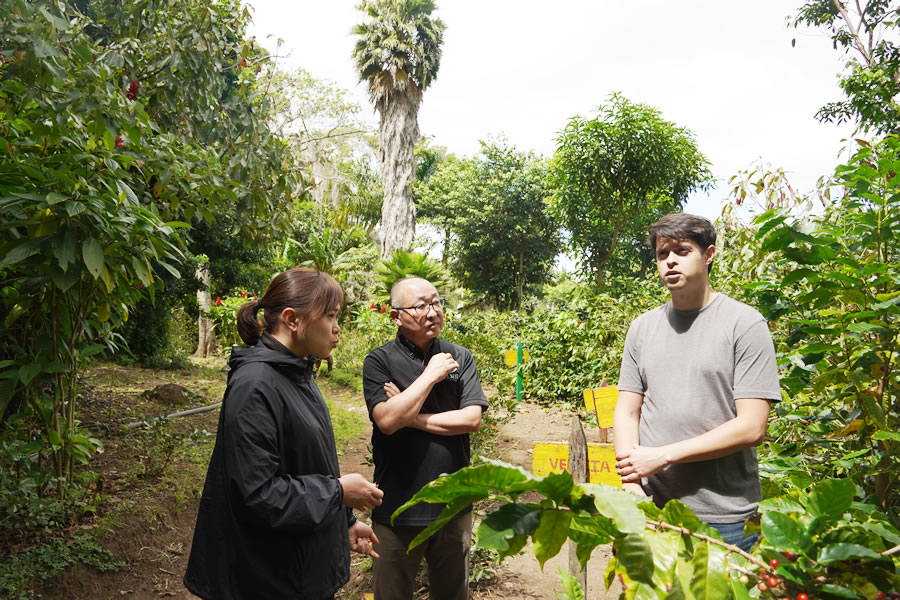【Interview 1_tashiro coffee co., ltd】How long can you get a good cup of coffee at this price?- PREX Island
Enterprise managers SDGs
Interview 1: Secrets of Good Coffee
tashiro coffee co., ltd.
Pursuing the possible ways to enjoy coffee
A company dedicated to delivering delicious coffee to consumers
- Main Store, Hanshin Department Store Umeda
How long can you get a good cup of coffee at this price?
Colorful packages line the first floor of Hanshin Department Store. That is Tashiro Coffee’s store. You can buy coffee beans and enjoy coffee sweets at the same time.
Tashiro Coffee sells coffee beans through the Hanshin Department Store, its head office, and online store, as well as wholesale to cafes, and sources high quality coffee beans directly from farmers in Central and South America, Asia, and Africa. I often buy individually wrapped drip coffee for 190 yen per bag from one corner of the store.
Whether you think it is expensive or cheap is up to you.
Tashiro Coffee’s coffee is the best in the world, and for me it is a necessary expense as a daily treat, but I thought it was a little expensive.
However, now that I have heard about the current state and future of the coffee industry through an interview with President Tashiro, I feel that it is only natural that coffee with this great taste costs 190 yen, and if the future may come when I can no longer drink it, I feel that I can make a small contribution to changing the future.
*PREX’s Okumura, Araki, and Kojima interviewed President Tashiro and his daughter Hikaru in January 2024.
Finding the right balance between quality and price
[PREX Okumura]
Can you tell us why Tashiro Coffee is so delicious?
[President Tashiro]
It is about good quality.
The key to producing good quality coffee beans is to make sure that the fruit is fully ripe, that the seeds that will become coffee beans have sufficient nutrition, and that they are dried in the shade to avoid high temperatures in the sun.
Freshness is also very important.
As I have learned from my visits to local coffee farms, the more sorting is done, the better the quality will be.
However, the more sorting is done, the more labor costs are incurred.
It is difficult to find a balance between the price that Japanese consumers can afford and the quality of the beans they buy.
It takes about 80 coffee beans to make one cup of coffee.
[PREX (all)]
80 grains per cup?
- Coffee cherries just after harvesting
[PREX Okumura]
Ten cups yield 800 grains, and 100 cups yield 8,000 grains. And do they pick them while sorting them by hand?
That’s a lot of labor costs.
- Harvested coffee cherries being packed into bags
[President Tashiro]
Yes, it is.
We can sell coffee at this price in Japan because of the low labor costs in each country and the strong Japanese yen now.
[PREX Araki]
Is it possible to grow coffee in Japan?
[President Tashiro]
It is possible in some areas, such as Okinawa.
However, coffee made from beans grown and harvested in Japan would be quite expensive.
- President Tashiro talking with a person from Mamma Mina Estate in Nicaragua
Will we not be able to drink good coffee in 2050?
[PREX Okumura]
I have seen in the news that there are efforts to change the countries where crops are grown due to climate change.
I have heard that the coffee industry has been talking about the 2050 problem.
What exactly is the problem? Will we no longer be able to drink coffee?
[President Tashiro]
As a result of climate change caused by global warming, it is estimated that by 2050 Arabica will be almost impossible to grow.
*Most of the coffee consumed in the world is Arabica or Robusta, a type of Canephora, and specialty coffees are mostly Arabica.
Currently, there is a rush to develop varieties that are also resistant to climate change, but not Arabica.
However, the inability to grow coffee trees themselves in the first place is a bigger challenge, so varieties are being improved, developed, and replanted to prevent coffee itself from disappearing.
This is an urgent issue for farmers as well.
In Colombia, most farmers have already replaced Arabica with new varieties.
[PREX Okumura]
Are the local farmers that you deal with directly also aware of the 2050 issue?
[President Tashiro]
I think they are well aware of that.
Therefore, they are replanting.
[PREX Okumura]
Does this mean that after 2050 there will be no more Arabica coffee?
[President Tashiro]
It may not disappear, but it will be expensive.
[PREX Okumura]
I hope that a variety comparable to the Arabica variety will be developed!
Next interview
Interview 2: Buying Directly from Farmers
- Date : February 3, 2025
- Name : PREX SDGs Team






